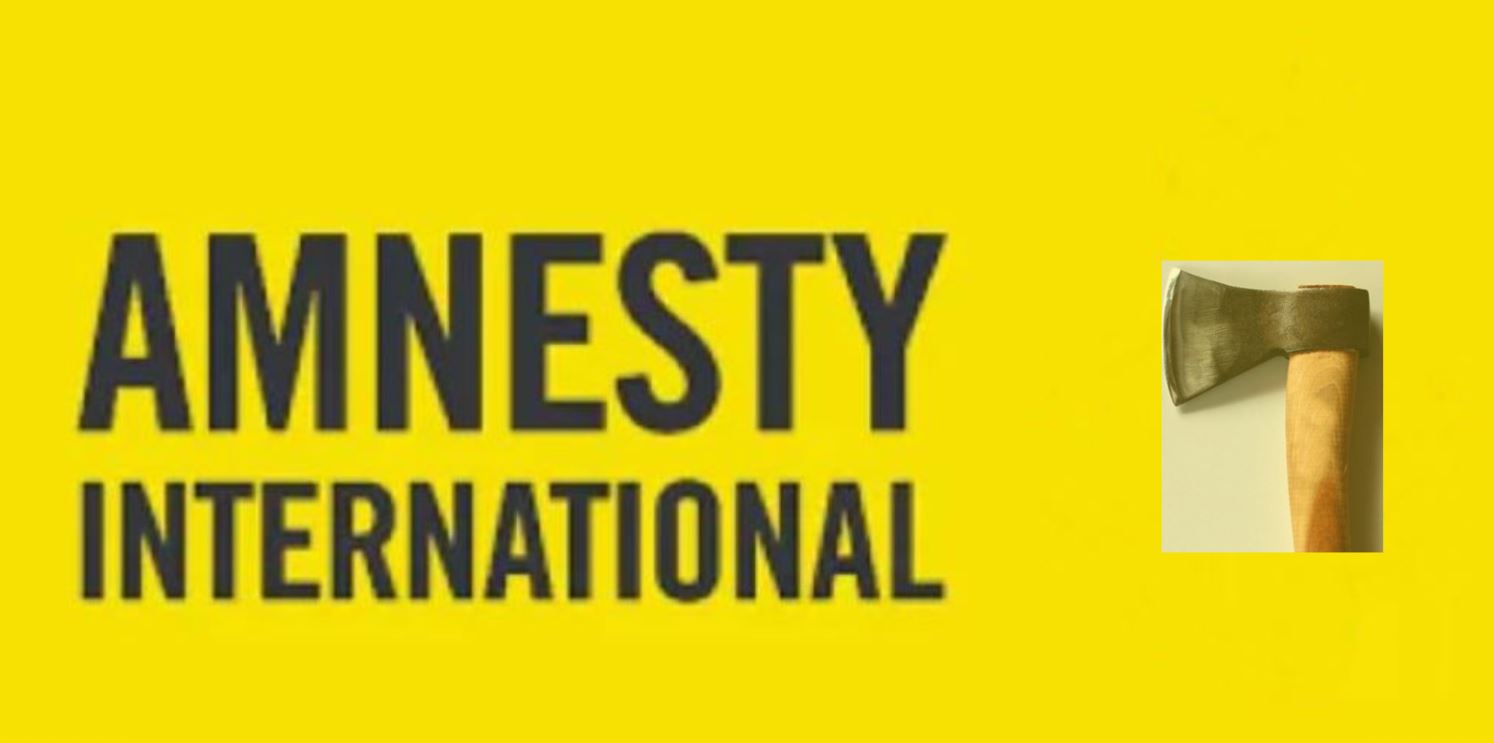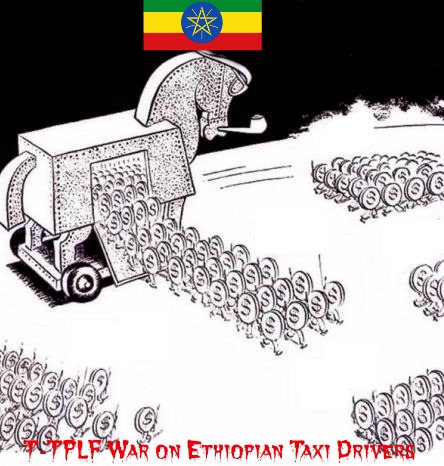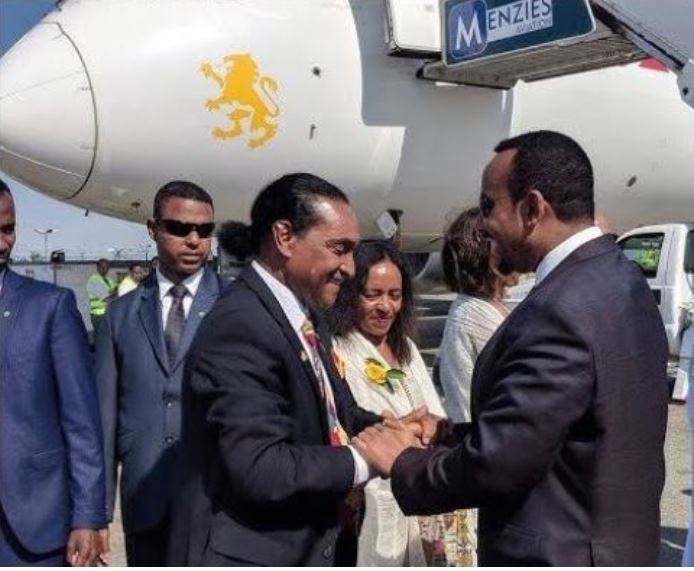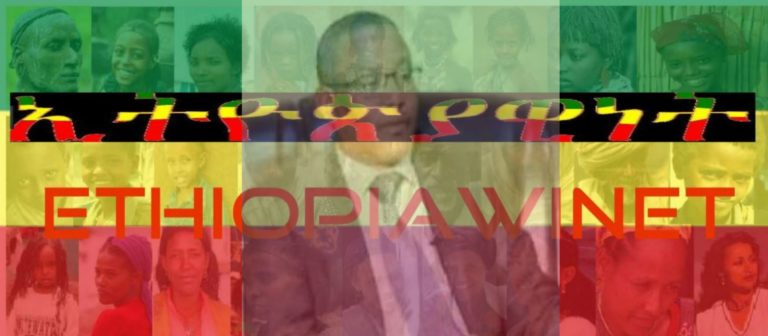AmNasty International’s Hatchet Job “Human Rights” Report on Ethiopia
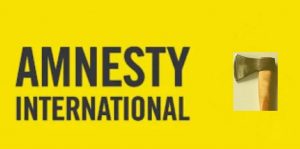
“You hypocrite, first take the plank out of your own eye, and then you will see clearly to remove the speck from your brother’s eye.” Matthew 7:5
“Although Amnesty is an organisation that employs many outstanding, talented, caring individuals, many former and current staff describe Amnesty as an environment in which staff do not feel that they are valued, protected, or treated with respect and dignity. The Assessment Team received many reports (from multiple offices and regions) of power misuse, discrimination, targeting, bullying, and other practices which have undermined wellbeing. One current staff member described Amnesty as “a toxic culture of secrecy and mistrust—a place where there are back-room deals.” Numerous other staff provided similar descriptions. Even if you leave aside the unusual occupational stressors that attend exposure to details of human rights violations, this sort of organisational environment has exposed many staff to exceptional levels of stress in recent years.” —Amnesty International Staff Wellbeing Review, The KonTerra Group, 2019. (Italics added.)
Author’s Note: On May 31, 2020, Amnesty International (AI) issued a 50-page report on Ethiopia making sweeping claims of human rights violations by government forces and turning a completely blind eye and deaf ears to crimes against humanity committed by terror and extremist groups masquerading as rebel movements and liberation fronts. That report can best be described as a hatchet job aimed at discrediting the enormous human rights progress that has been achieved in Ethiopia over the past two years and is manifestly intended to vilify PM Abiy Ahmed depicted on the AI report cover wearing the Nobel Peace Prize as AI lifts the rug under him showing heavy-booted soldiers brandishing AK-47s and batons over civilians cowering in fear. As demonstrated below, the AI report lacks credibility and impartiality and represents nothing more than a smear and spear campaign against the transformational changes taking place on the human rights landscape in Ethiopia today.
Let there be no doubt!
Anyone suspected of committing crimes against humanity, murder, torture, genocide, war crimes, the crime of aggression and other violations of human rights must be brought to the bar of justice. If Amnesty International has any evidence to aid in the prosecution of human rights violators, it should make it public NOW. A hatchet job human rights report full of rumors, innuendos, hearsay, copy and paste clichés, buzz phrases and platitudes may succeed in tarnishing Ethiopia’s international image, help spread sensationalized disinformation on Ethiopia’s significantly improved human rights record, but it is woefully insufficient to prosecute those suspected of human rights abuses. Let AI present its evidence of human rights violation and the chips fall where they may!
I start my analysis of the AI report by asking whether Amnesty International even has the moral authority to accuse Ethiopia of human rights violations when AI’s leadership is proven to have committed grave violations of human rights of AI’s employees and the bureaucratic process they have created has been commonly described by employees as a “toxic work environment”.
When you point one finger at Ethiopia for human rights violations Amnesty International, there are three fingers pointing back to you for the same thing!
Amnesty International claims to be the standard bearer for global human rights. “We are campaigning for a world where human rights are enjoyed by all,” proclaims AI which was awarded the 1977 Nobel Peace Prize.
But does AI practice the human rights it preaches to the world in its own offices, with its own employees?
In 2019, Amnesty International hired the KonTerra Group, the first responders to “organizations in the humanitarian and development sector” as it faced an imminent meltdown in the ranks of its employees.
KonTerra’s investigation found “widespread discontent and lack of trust” among AI employees. KonTerra found a documented case of an AI employee who committed suicide because of job stress and large numbers of AI employees who developed severe mental health problems in the AI workspace.
KonTerra discovered evidence of “abuse of power, not following due process in making or communicating decisions, mismanaging grievance processes, mishandling documents, breaching reasonable expectations of confidentiality” and other misconduct were uncovered during the investigation.
In its scathing and searing 56-page report, KonTerra described Amnesty International as a hellish workplace:
Amnesty as a working environment is often described as “toxic.” The top five reported sources of stress all involved workload and management culture, and a significant proportion of staff (39%) reported that they have developed mental or physical health issues as the direct result of working at Amnesty. Further, many roles at Amnesty hold significant risk of experiencing secondary stress or vicarious trauma.
Amnesty’s efforts to support staff wellbeing have been ad hoc, reactive and piecemeal: Amnesty has made some nascent attempts to explore wellbeing … but these initiatives are not meeting the needs of most staff, and the organisation lacks a comprehensive, well-coordinated, and integrated approach to supporting staff wellbeing. (Italics added.)
KonTerra made 6 critical recommendations to AI to make its workspace and workplace a place of dignity, fairness, safety, equality and well being: 1) Work to repair ruptures and foster a sense of safety and trust among senior leadership, the organisation, and staff. 2) Work to counter a culture of criticism and blame by fostering a development culture. 3) Implement a comprehensive and systematic approach to staff well being. 4) Improve support for issues related to stress. 5) Enlist, equip, and better support managers to improve well being. 6. Review and professionalize employees and improve organizational development.
On January 31, 2019, Amnesty International Secretary General Kumi Naidoo issued a statement fesses up to the longstanding problems in her organization:
Our own engagement surveys already indicated some time ago that we are facing an alarming trust deficit in the International Secretariat… To hear our employees speak of a culture of secrecy and mistrust where discrimination, bullying and abuse of power have been condoned is profoundly troubling. In my first months as Secretary General, I have spent many hours meeting with and listening to staff, and numerous people have come to me raising concerns about stress, anxiety, relationships, harassment, and internal communication. (Italics added.)
Suffice it to say that as AI was preparing its indictment on human rights violations on Ethiopia, the KonTerra Group had already indicted and convicted AI of gross human rights violations of its own employees.
It is true, “People who live in glass houses should not throw stones.”
Is Amnesty International the mouthpiece (international public relations office) of the Oromo Liberation Front?
Having read AI’s hatchet job human rights report and reviewed previous statements on human rights in Ethiopia, I wondered if AI is a campaigner for global human rights or the mouthpiece for the Oromo Liberation Front.
Looking over AI reports and statements just in 2020, I was surprised to see the umbilical cord connecting Amnesty International with the Oromo Liberation Front. The evidence plainly shows AI is hellbent on demonizing the Ethiopian government by spewing unsubstantiated and uncorroborated allegations of mistreatment and abuse of the Oromo Liberation Front.
In a January 27, 2020 Statement, Amnesty International declared “Ethiopian authorities intensified their crackdown on dissenting political views by arresting at least 75 supporters of the Oromo Liberation Front.”
In a February 17, 2020 Statement, Amnesty International reported, “Just hours after the date for Ethiopia’s parliamentary elections was announced, the Oromia Liyu police raided the inauguration of an Oromia Liberation Front (OLF) office in Welenchiti, firing live bullets and tear gas, killing one OLF supporter who was a clothes vendor.”
In a March 3, 2020 Statement, AI demanded, “Police must account for missing leader of the Oromo Liberation Front.”
In an April 7, 2020, Statement, AI demanded, “The Ethiopian authorities must immediately release two journalists from the Oromia News Network and three Oromo Liberation Front (OLF).”
In a May 29, 2020 Statement, Amnesty International alleged “two members of the Oromo Liberation Front were killed in government operations.”
The fact of the matter is that the Oromo Liberation Front is a terrorist organization listed in the Global Terrorism Database.
The Oromo Liberation Front, along with other terrorist groups, has a long history of carrying out “kidnappings, assassination attempts, mining of roads, and bombings of bars, hotels, and public buildings.”
AI has long been criticized for its affinity to terrorist groups. NGO Monitor has repeatedly accused AI of being soft on those with “ties to terror organizations.”
Truth be told, I would not be surprised to learn if the “research”, “interviews” and “data” used in the May 31, 2020 Amnesty International report was organized, coordinated and prepared in collaboration with intellectuals sympathetic to the Oromo Liberation Front.
What is in the May 31, 2020 Amnesty International report?
The AI report entitled, “Beyond Law Enforcement: Human Rights Violations by Ethiopia Security Forces in Amhara and Oromia” is “based on desk and field research carried out by Amnesty International between November 2019 and March 2020.”
The “main basis of the report are interviews conducted in Addis Ababa, Gondar, Aykel, Ayimba, Weleqa, and Hawassa.”
The number of people interviewed were “more than 80 individuals, 20 of whom were women, mainly victims and/or direct witnesses to human rights violations.”
The alleged human rights “victims included farmers/pastoralists, business owners, students, civil servants, opposition politicians, and teachers.” Staff working for the “Ethiopian Red Cross Society branch office in Gondar town and the head of the Peace and Security Department of Central Gondar Zone” were also interviewed.
Amnesty International claims to have “spoken to internally displaced people (IDP) from Metema town, Shinfa, Tegede, Azezo, Arbaba, Aykel and Ayimba areas in Amhara regional states” in person, except for four individuals. In Oromia, interviews were conducted by “telephone with victims in Harqelo, Balambel, Saranser, Adola, Shakiso, Addis Ababa, and Hawassa” and “in-person interviews with victims and witnesses from East and West Guji zones” in Hawassa.
AI’s findings
The principal findings of Amnesty International in its “research” are the following:
In response to the armed violence by the “Oromo Liberation Army” (OLA), the government in January 2019 launched a law-enforcement offensive by establishing command posts which used indiscriminate force against the OLA and to address the inter-communal conflicts in Amhara, Harar, and the SNNP regions.
Since January 2019, at least 39 people had been extrajudicially executed in Goro Dola District of East Guji Zone and Dugda Dawa District of West Guji Zone in Oromia.
The command post in the two Guji zones conducted multiple arbitrary arrests and detention of people suspected of supporting OLA and OLF and thousands of people underwent protracted detention in local police stations in West and East Guji zones. The command posts transported thousands of detainees from all over Oromia to Tolay Military Training Camp, where the detainees were forced to undergo compulsory training on rule of law, constitutionalism, and the history of the Oromo struggle. Beside the training, the detainees were required to make incriminating statements during group sessions and held in particularly punitive prison conditions.
Communities in the rural localities of Goro Dola District were forcibly evicted as part of the law enforcement strategy by the command post. The forced eviction and resettlement of the semipastoralist communities disrupted their traditional way of life and negatively affected their livelihoods.
In the Amhara Region, at least 150 people were killed in inter-communal conflict in January 2019. In one attack 58 ethnic Qimant people were killed within 24 hours on 10-11 January 2019. The local militia and administration officials conducted the attack on the Qimant residents of the neighbourhood together with an Amhara youth vigilante group, commonly known as Fanno – using with guns, grenades, stones, and fire. The EDF soldiers stationed in the town did not take any action to prevent the violence despite repeated calls for help.
Is AI’s May 31, 2020 report credible?
The Ethiopian federal government and the regional governments of Oromia and Amhara have issued statements repudiating the findings of the AI report.
The Amhara Association of America issued a 10-page point by point rebuttal of the AI report in the Amhara region challenging the “inaccuracies, lack of balanced investigation, and omissions [which] makes one question the intent of this report.”
However, before we accept the validity or veracity of the Amnesty International report, a number of key questions must be answered since much of the “evidence” of human rights violations used in the report consist of “eyewitness testimony”, information obtained from confidential informants, reports of “anonymous sources”, analysis of anonymous “desk researchers” and other opaque sources. To determine the credibility of AI’s “evidence”, one must question the source and the procedures used to collect the evidence.
Intensive interviewer training is the most important elements in obtaining high-quality data in interviewer-administered surveys. Who are the so-called “Amnesty International researchers and interviewers”? What type of training did they receive and who provided it?
Since the AI’s research is what is called “qualitative” research, what set of questions were used by the “researchers” in conducting their interviews? Such research is fraught with methodological problems and susceptible to researcher bias.
What procedures did Amnesty International employ to verify or corroborate the “factual” claims of the alleged victims?
What is the political affiliation of AI “researchers”, “eyewitnesses” who provided interview responses? What procedures did Amnesty International employ to control for political bias?
In an extremely polarized situation where human rights are politicized, there is likely to be fear and suspicion. How did AI guard against politicization of researchers and witnesses?
What procedures did AI use to ensure “victims” and “witnesses” are not coached by researchers who may have their own political agenda?
What safeguards were in place to ensure interviewers did not doctor responses of “eyewitnesses”?
What procedures did AI employ to separate facts from rumors, gossip, hearsay and blanket accusations?
What criteria and procedures did AI employ to identify and select “victims” and “witnesses”? AI says it interviewed “more than 80 witnesses”. How many witnesses did AI researchers actually interview for the report? Were there witness statements that were excluded and if so on what grounds?
Did AI interview any witnesses that gave a different version of facts that occurred in the various alleged incidents? Or did AI cherry pick only those witnesses who were ready to give damning testimony on human rights violations?
Why did AI prepare a report ONLY on “human rights violations by Ethiopian security forces in Amhara and Oromia”? Why did AI not include human rights violations by the Oromo Liberation Front or the Oromo Liberation Army?
Does AI have its own agenda in Ethiopia?
Amnesty International has been accused of “obsession” with and bias against Israel. Is the May 31, 2020 report an indication of a coming attraction of AI’s “obsession” and bias against Ethiopia?
The “halo effect” of Amnesty International or the “horn effect”
Amnesty International has been given a free pass on the stuff it reports for decades. It is called the “halo effect”. Just like the halo that hangs over angles. AI’s reports are quoted in the world press as gospel truth. They are given credibility by journalists, diplomats, academics, and individuals. with little critical review.
Let there be no mistake.
I am not condemning Amnesty International as a human rights organization. I am only raising questions about its credibility and impartiality in its May 31, 2020 report.
I believe that report was prepared in bad faith to tarnish the glowing image of Ethiopia as an emerging oasis of human rights protection and symbol of peaceful change in Africa.
It is no secret the influence and credibility of Amnesty International continues to erode especially after the KonTerra group exposed its dirty laundry to the public. Despite claims of being a grassroots member-driven movement, Amnesty International with its global branches operates as highly bureaucratic organization.
In 2019, AI issued a statement declaring it “is facing a serious budget deficit which must be urgently addressed. Even though membership of Amnesty is increasing worldwide, funding for the international secretariat has reduced.”
Perhaps AI may be trying to drum up more donations by slamming Ethiopia for alleged human rights violations. If so, AI will have to trade in its “halo effect” with a “horn effect”. That would be angles with horns.
On a personal note:
I got involved in Ethiopian human rights advocacy because of ONE and ONLY ONE reason. The Meles Massacres of 2005.
For almost 15 years now, I have championed the cause of Ethiopian human rights, democracy, freedom, the rule of law in my weekly commentaries.
I appreciate the necessity for protecting the confidentiality of sources and the reasonable fear of witnesses and victims to give testimony in the open. But that should not be an excuse for lack of methodological transparency and corroboration of allegations in a credible manner.
However, human rights organization such as Amnesty must be challenged when material and work is inaccurate or incomplete.
I have an uncompromising commitment to truth, freedom, equality, fairness, the rule of law and democracy. I have no allegiance to any person, group, organization, political system, or ideology.
I am not naïve enough to believe human rights violations do not occur in Ethiopia.
Not only in Ethiopia but in America, the “land of the free and home of the brave”, are human rights of citizens violated in flagrant ways.
Today, America is facing historic popular upheavals to stop once and for all human rights violations by the police. Less than two weeks ago, George Floyd, a young African American, was murdered by police as the entire world watched in horror and shock.
Since 2015, police in the U.S have shot and killed 5,400 people. A little over 1 thousand people a year!
African Americans are disproportionately affected in the American criminal (in)justice system. “Black men are nearly three times more likely than white men to be killed by police intervention.” Rarely are police officers prosecuted in America and even more rarely convicted and serve time.
The US has the largest prison population in the world, as well as the largest incarceration rate per capita, Black Americans make up a third of the US prison population, despite only making up around an eighth of the country’s total population.
Human rights abuses are global problems that must be tackled on a global level. Amnesty International claims to be a global defender of human rights. In defending human rights, Amnesty International must not take a holier-than-thou attitude nor use its reports to advance a political agenda of any kind. It should be guided by only one principle. Let the facts speak and the chips fall where they may!
Over the past two years, there has been a sea change in Ethiopia. The political space has been opened to all who wish to participate peacefully. The rule of law stronger in Ethiopia than at any time in living memory. Above all, Ethiopia has a youthful leadership that is the envy of the world.
Ethiopia is far from perfect by any standard of human rights. Ethiopia today is a work of political art in progress. Ethiopia today is democracy in motion.
For me, it is all a labor of love of Ethiopia.
I am proud to say Ethiopia is on the (human) right track today. I will do everything I can to keep it on the (human) right track.
—-
“In the End, we will remember not the words of our enemies, but the silence of our friends.” Dr. Martin Luther King, Jr.

